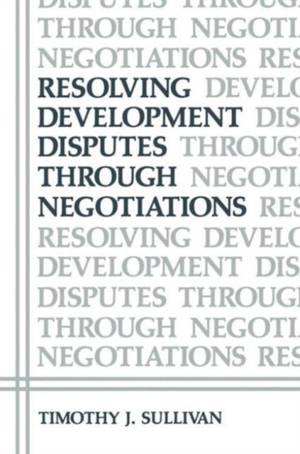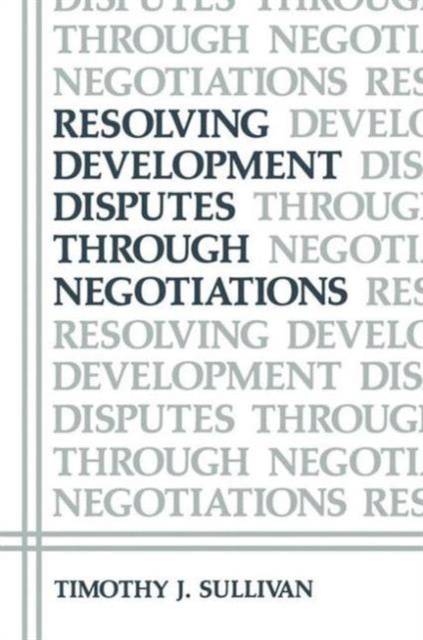
Door een staking bij bpost kan je online bestelling op dit moment iets langer onderweg zijn dan voorzien. Dringend iets nodig? Onze winkels ontvangen jou met open armen!
- Afhalen na 1 uur in een winkel met voorraad
- Gratis thuislevering in België vanaf € 30
- Ruim aanbod met 7 miljoen producten
Door een staking bij bpost kan je online bestelling op dit moment iets langer onderweg zijn dan voorzien. Dringend iets nodig? Onze winkels ontvangen jou met open armen!
- Afhalen na 1 uur in een winkel met voorraad
- Gratis thuislevering in België vanaf € 30
- Ruim aanbod met 7 miljoen producten
Zoeken
Resolving Development Disputes Through Negotiations
Timothy J Sullivan
€ 100,95
+ 201 punten
Uitvoering
Omschrijving
In the last decade, disputes between developers and local commu- nities over proposed construction projects have led to increasing litiga- tion. Environmental legislation, in particular, has greatly enhanced the rights and powers of organized groups that desire to participate in local development decisions. These powers have allowed citizen groups to block undesired and socially unacceptable projects, such as highways through urban areas and sprawling suburban developments. At the same time, these powers have produced a collective inability to construct many needed projects that produce adverse local impacts. Prisons, airports, hos- pitals, waste treatment plants, and energy facilities all face years of liti- gation before a final decision. At times, prolonged litigation has pro- duced especially high costs to all participants. Despite these new powers, citizen action has often been limited to participation in public hearings or adjudicatory proceedings. Typically, this occurs so late in the decision process that citizen input has very little affect in shaping a project's design. Those who dislike some element of a project often have little choice other than to oppose the entire project through litigation.
Specificaties
Betrokkenen
- Auteur(s):
- Uitgeverij:
Inhoud
- Aantal bladzijden:
- 236
- Taal:
- Engels
- Reeks:
Eigenschappen
- Productcode (EAN):
- 9780306416583
- Verschijningsdatum:
- 31/10/1984
- Uitvoering:
- Hardcover
- Formaat:
- Genaaid
- Gewicht:
- 489 g

Alleen bij Standaard Boekhandel
+ 201 punten op je klantenkaart van Standaard Boekhandel
Beoordelingen
We publiceren alleen reviews die voldoen aan de voorwaarden voor reviews. Bekijk onze voorwaarden voor reviews.











